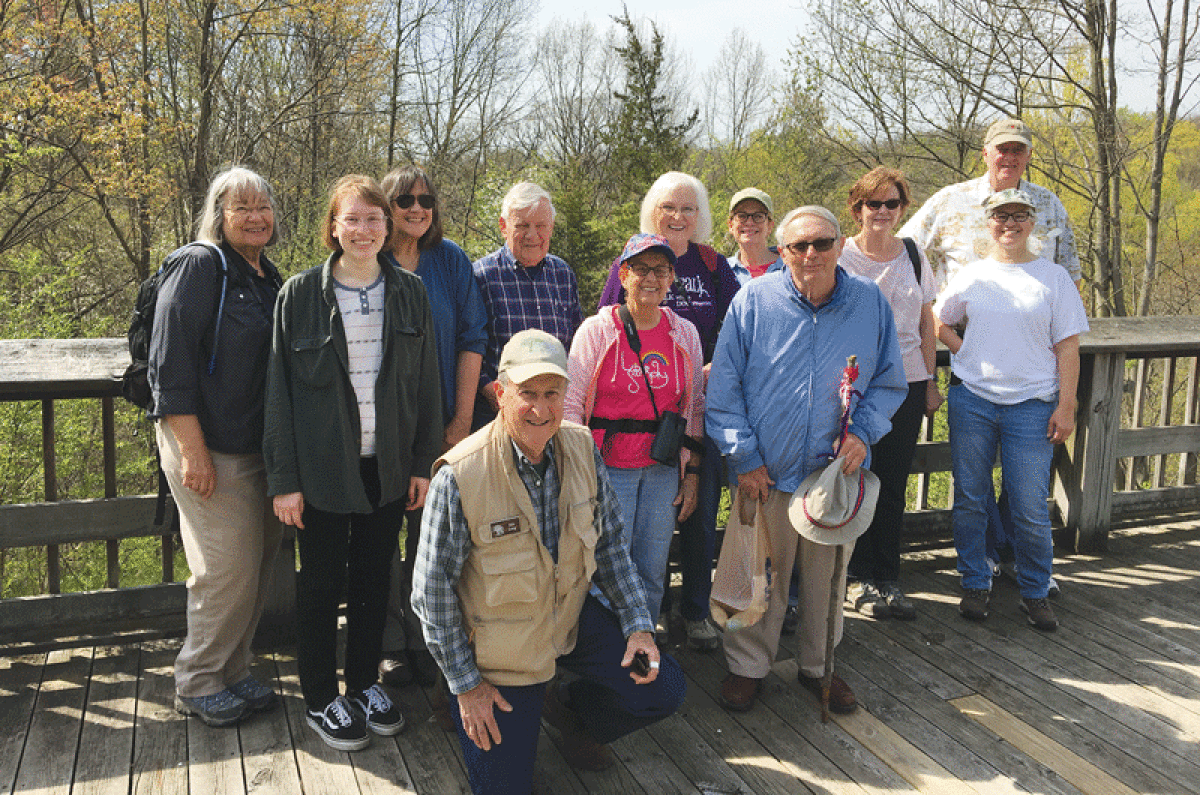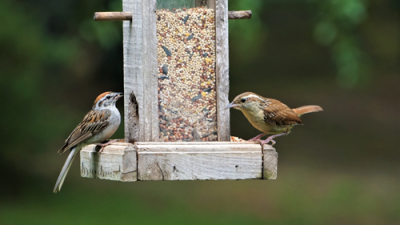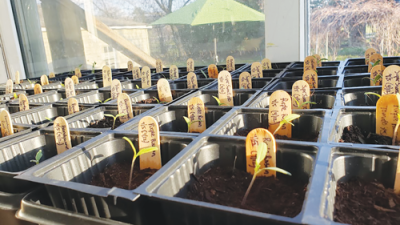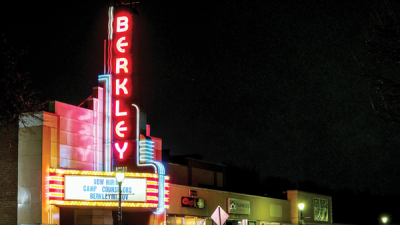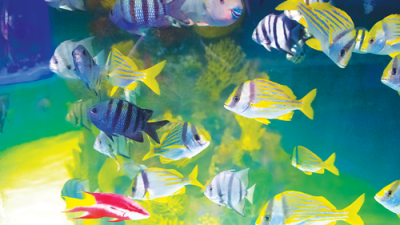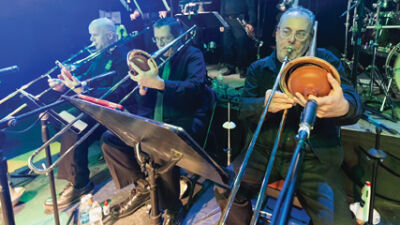FARMINGTON HILLS — The Farmington Hills Nature Center offers multiple opportunities for children to enjoy programs it schedules, and with a recent series, adults have been invited to be part of the fun.
Earlier this year, the nature center started its Nature Education Classes for Adults series, with classes offered both virtually and in person.
The first class in the series was on seeds, which took place in September.
The remaining classes scheduled will be on leaves, turkeys and snow.
A virtual presentation about leaves was scheduled for Oct. 4, after press time. The in-person event is set to take place 6:30-8:30 p.m. Oct. 11.
The turkeys virtual class is scheduled for 7-7:45 p.m. Nov. 1, with the in-person offering set to take place 6:30-8 p.m. Nov. 8.
The subject of snow is set to be presented virtually 7-7:45 p.m. Dec. 6, with the in-person class scheduled for 7-7:45 p.m. Dec. 13.
The in-person classes take place at the Farmington Hills Nature Center, which is located at 24915 Farmington Road.
Pre-registration is required for in-person workshops.
While it is not required for virtual classes, it is encouraged.
To get a link to join virtual classes, send an email to asmith@fhgov.com or call the nature center at (248) 473-1870.
There is a $5 fee for Farmington Hills residents for in-person classes and a $10 fee for non-residents.
The virtual classes are offered for free.
The nature center also offered classes for adults last winter.
“It was meant for adults to expand their nature knowledge and broaden their horizons of things they’re interested in,” said Farmington Hills Nature Center Supervisor Ashlie Smith. “We explore our new topic each month, and how it works is, the first Tuesday of the month is our virtual Zoom presentation, and that is a free Zoom webinar that folks can just get on. … That goes into the basics of the topic. And then the following week, the next Tuesday, is our in-person workshop where we go more in-depth into the topic and sometimes even bring in a guest expert to talk about their experience in the field with the topic.”
Annabelle Raines is a nature center coordinator at the Farmington Hills Nature Center.
She discussed the flexibility that comes with the class offerings.
“We’re catering to two different communities,” Raines said. “We do have people who feel more comfortable having that virtual experience — it allows us to show photos and visuals we can’t show in person. But then for those people who (want to) get hands-on and more in-depth, they can come in-person and learn from that, too. One of the big perks we’ve heard is that people get to choose whether they would like to do virtual (or) in-person, or they can do both if they choose to.”
In-person classes may also include hands-on activities.
Smith estimated that at least 15 people are typically a part of the Zoom sessions, but she added that there have been upwards of 50.
As for in-person sessions, Smith estimated that there are typically between 10 and 20 attendees.
She shared how the series for adults originated.
“The program came out because we started doing our volunteer guide trainings once a year, and during that, we focused on how to do environmental education and interpretation,” Smith said. “There was some feedback that folks wanted more opportunities to be able to expand their knowledge. … Plants and animals of the park, and different topics like tracking, native plants or wild edibles. And so, that’s how it came about, is doing a monthly series that folks could sign up for.”
The nature center may offer more classes for adults in the winter, including on the topics of coyotes and owls, which were part of a series offered earlier this year.
“We plan on doing coyotes again because that was a really popular topic,” Smith said. “We might do owls again in the winter. The program has built on the feedback that we have from our participants and visitors at the nature center … what they want to learn and where their interests are.”
Aside from feedback from community members, seasonal topics can also drive the nature’s center’s programming.
“An example of that is we might do a program on gardening or something in March or April, in anticipation for the garden season to get underway as we get into May or June, or something like that,” Smith said. “We did a seeds one in September, and that’s because, as we get into September or even October, it’s the peak season where you’re seeing all kinds of different kinds of seeds that are starting to spread all around the park, and flowers that are turning to seed. … Next spring, it’s not in the activities guide yet, but we’re wanting to do a topic on ticks … and they are quite fascinating to learn about.”
Smith said that the feedback the nature center has received since starting the Nature Education Classes for Adults is that “people really enjoy it.”
Designing classes that are geared toward adults has represented a change for staff members.
“I feel like I have been doing programs for kids, for school-aged and preschool children, for years and have expertise in the field of getting kids connected to nature,” Smith said. “We wanted to do that for our adult visitors, as well — making sure that they had an opportunity to expand their knowledge and connect with nature at the adult level, as well as the kids and families that come to our program.”
The diversity of learners has appealed to Raines.
“One of the perks of being here is being able to work with so many different age groups,” she said. “It’s been really exciting to not only spend time with the kids, but to have that adult nature series, where I can dive deeper and more in-depth with topics. … It’s a great opportunity, because it’s very easy to cater to those kids and forget about the adults, but Farmington has done a great job of allowing them to explore and get them moving, just like we get the kids moving.”
Aside from age, from Smith’s perspective, there has been “little difference” between child and adult programming.
“If you can figure out the way to spark the curiosity in an adult, it looks the same as it does in a child,” she said. “The questioning, the observations and using your senses to explore, all those things come alive in an adult, too, just like they do in a child. … It is really cool to see adults get excited about these topics and ask a lot of questions.”
Smith provided a synopsis of what people can expect to learn at the leaves classes.
“In addition to learning about leaves, how they change colors, how they function for the tree and different adaptations that leaves have, we might also dive into some trees that have some really cool types of leaves and how they benefit the tree and the tree’s ability to survive,” she said. “At the in-person version of the leaves workshop, we’re also (going to) be tying in some elements of the seeds workshop, too, that we didn’t get time to do. Leaves and seeds complement each other really well, so we’ll be focusing on a little bit of both in person.”
There is no better month than November to talk about turkeys.
“Turkeys have a really amazing success story, as far as their comeback from their population being so depleted in Michigan and how their conservation success story has evolved over time,” Smith said. “And then the turkeys in Heritage Park are very famous. And so, we’ll be talking a little bit about all the turkeys you can find here at Heritage Park and going into the adaptations that they have, as well as what they’re doing at different times of the year, especially in the fall — how they’re getting ready for the winter season and all of that.”
Snow can also make for a detailed and fascinating topic for some.
“We’re really excited to go into snow science and what is snow, and what are all the different kinds of snow and snowflakes,” Smith said. “And even if there’s not actually snow when we’re doing the virtual or in-person workshop, we have a lot of fun activities planned to really explore snow and what it’s all about. So then, that way, when we get into our snowy season — January, February, March — people are feeling like they have a really good understanding of snow and how it works.”
Smith suggests that people register for a class that they’re interested in at least a day or two in advance of the scheduled program.
 Publication select ▼
Publication select ▼